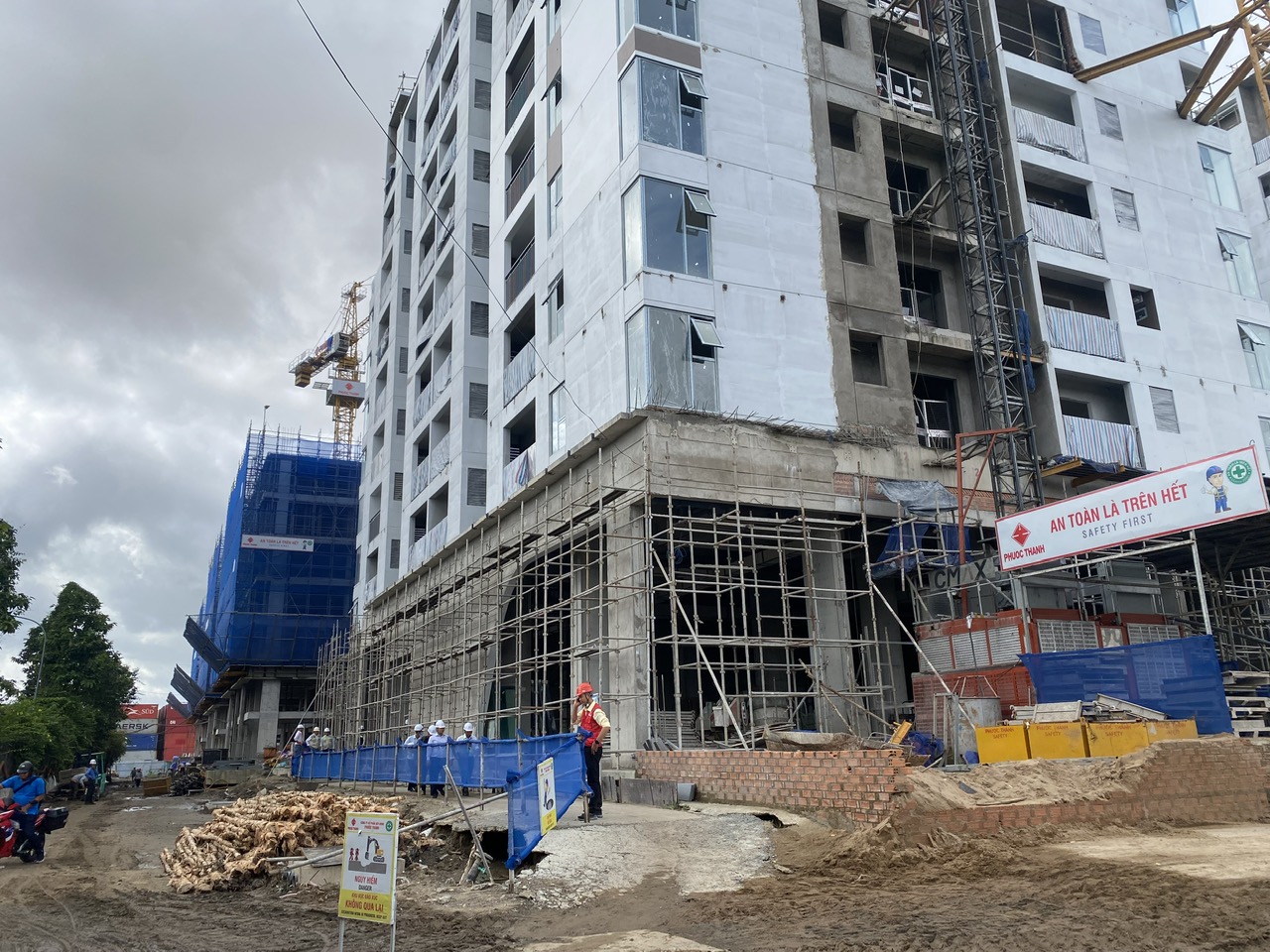The Department of Construction of Ho Chi Minh City has recently issued a report on the development of social housing. According to the approved development plan for social housing in Ho Chi Minh City for the period 2021-2025, it is expected to develop 2.5 million square meters of social housing, equivalent to 35,000 apartments.
However, up to now, the city has only completed 2 projects, with a total floor area of 61,554 square meters (623 apartments).
In addition, the city has 7 social housing and workers’ dormitory projects under construction, with a total of 4,996 apartments and a total floor area of 383,258 square meters.

Social housing project for workers with more than 1,000 apartments in Thu Duc City.
In celebration of the 50th anniversary of the Liberation of the South, the reunification of the country, the People’s Committee of Ho Chi Minh City has set a target to strive to complete and put into use about 12,000 apartments, equivalent to 1.15 million square meters of floor area, with a total investment of around 11,500 billion dong.
The Department of Construction has pointed out a series of difficulties and obstacles in the development of social housing, workers’ dormitories, especially the difficulty in accessing loan capital.
Specifically, long-term capital with preferential interest rates to support investors in implementing social housing projects and home buyers with loans at lower interest rates compared to the average long-term lending interest rates of state-owned commercial banks is still unstable.
Currently, there is a 120,000 billion dong credit package for preferential loans committed by 4 banks, Agribank, BIDV, Vietcombank, and Vietinbank, with the Government for investors and homebuyers to borrow at interest rates lower by about 1.5% – 2% compared to the interest rates for medium- and long-term lending of state-owned commercial banks.
However, when receiving credit appraisal dossiers for lending to investors, banks have their own regulations on lending conditions to ensure the recovery of loans as prescribed.
Specifically, for social housing and workers’ housing projects, they must have a land use right certificate. According to Clause 2, Article 173 of the Land Law 2013, it is stipulated that “Organizations assigned land by the State without land use fees have no right to convert, transfer, gift, lease land use rights, mortgage, raise capital with land use rights; they are not entitled to compensation for land when the State recovers land.”
Therefore, investors cannot use the project’s land plot as collateral for loans from commercial banks for that project itself but must use other assets as collateral to secure the loan.
In addition, most investors have not applied for a land use right certificate after receiving the land allocation or land use purpose conversion decision, so they do not have sufficient documentation to borrow according to the bank’s regulations.
From that point of view, the Department of Construction argues that if the difficulties and obstacles in investment and construction procedures are not resolved decisively, the city will not have projects that meet the requirements to enjoy the credit packages from the Government and will not be able to complete the targets set in the Resolution of the People’s Council of Ho Chi Minh City.
The Department of Construction recommends that the People’s Committee propose to the Ministry of Construction to lead and coordinate with the Ministry of Natural Resources and Environment, State Bank to resolve obstacles in the implementation of the 120,000 billion dong credit package from the Government.












